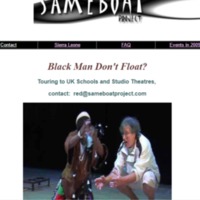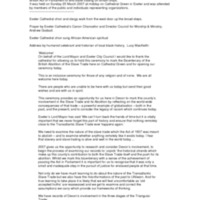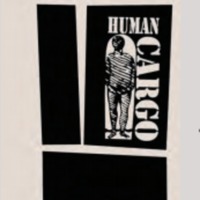
Black Man Don't Float?
Black Man Don't Float? is a play developed by Sameboat Project, a not-for-profit organisation working in collaboration with the Pierian Centre Bristol, Gecko Theatre Ipswich, and the Arrow Project at University College Plymouth. Set in the ocean off West Africa, a white yachtsman collides with an African economic migrant who is trying to reach the Canaries in a home-made vessel. They have to co-operate to survive, but their differences lead to confusion. Performed by West African performer Ayodele Scott and UK-based writer and performer Martin Hubbard, Black Man Don't Float? was shown in the UK and then travelled to Sierra Leone. The show was accompanied by a workshop entitled Fair Share, exploring issues around the fair sharing of resources, and the challenges facing developed and developing nations in their negotiations about aid, trade and the exploitation of natural resources.

Events to mark the bicentenary in Exeter
On Sunday 25 March 2007, a ceremony was held on Cathedral Green in Exeter to mark the bicentenary. Organised by Exeter City Council, the ceremony was attended by members of the public and individuals representing local organisations. Historian Lucy MacKeith examined the links between Devon, the transatlantic slave trade and its abolition. Extracts were read from the Narrative of Olaudah Equiano, and names read aloud of some of the Africans who came to Devon because of the county's connection to the slave trade.
The play 'Albert and the Story of Equiano' was performed at the Royal Albert Memorial Museum in October 2007. It told the story of Olaudah Equiano, a leading African figure in the British abolition movement in the 18th century.

Human Cargo: The Transatlantic Slave Trade, its Abolition and Contemporary Legacies in Plymouth and Devon
Human Cargo was a partnership project between Plymouth City Museum and Art Gallery, and the Royal Albert Memorial Museum, Exeter. The project consisted of two main components. The first was a historical exhibition, which explored the development of the transatlantic slave trade and, in particular, the role of Plymouth as a port, the involvement of the City's dignitaries and the South West's links with the abolition movement. The second part was a contemporary art response to modern forms of slavery and historical legacies, including the flower picking trade, sweatshop labour and the Fair Trade Movement. This work was newly commissioned and included audio visual pieces, installations, hand-printed wallpaper and participatory objects. A variety of events and activities took place alongside the exhibition including education workshops, performances, African music and storytelling activities, and Elizabethan House re-enactment sessions.